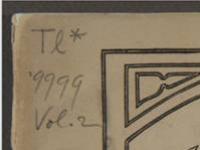While the American Civil War is commonly understood as a “brother’s war” between two regions of the country, an underappreciated aspect of this division is what historian Jennifer L. Weber calls the “neighbors’ war” that existed within the North. The initial burst of Northern patriotic fervor in response to Confederate attack on Fort Sumter began to fade as losses and causalities mounted. This fading political support led to growing opposition to the Lincoln administration, which nearly unseated the president in 1864. Historians have only recently begun to assess the true power and influence of this political opposition, known as “Copperheadism,” on the fighting of the war. Previous generations of historians have characterized the Copperheads’ true influence as minimal at best, a notion that is sharply disputed by the newest scholarship on the topic. Weber’s most recent history of the Copperheads strongly counters previously held assertions that these political opponents did not seriously undermine the Union war effort. Instead, she asserts that their encouragement of draft dodging and desertion forced the U.S. Army to divert resources to find draft dodgers and to maintain order in some parts of the North.
The City of Philadelphia and the Commonwealth of Pennsylvania were not immune from the “neighbors’ war” that existed in other parts of the North. Much like Philadelphia, Pennsylvania was divided politically in its support for the war. From its outset, different factions of state Democrats believed that they could end the war by taking control of the different branches of state government. The smaller faction of these Democrats were the political and social elites of Philadelphia, such as Pierce Butler and Charles Ingersoll, who favored peace at all costs, even if the country was left divided. The larger faction was a more moderate group of Democrats who opposed the war. Many Democrats were concerned by the perceived threats to civil liberties during this time, especially the revocation of habeas corpus, the use of military tribunals and the shuttering of opposition newspapers. Outside of constitutional debates, however, this opposition also reflected Pennsylvania’s unique demographics. The counties that had voted solidly Democratic since the 1850s represented Pennsylvania’s farming and coal mining regions. Political sentiment in these counties reflected concern over the abolition of slavery, which some viewed as potential competition for jobs and housing, as well as hostility towards the draft, since many conscripted farmers and laborers could not afford to pay for a replacement and were forced into military service.
The most controversial episode of political opposition in Pennsylvania occurred in Columbia County during the summer of 1864. Allegations of draft resistance and a potential armed revolt led the U.S. Army’s Department of the Susquehanna to send troops to establish order and arrest any suspected civilians. Forty-four citizens of this county were arrested and sent to Fort Mifflin in Philadelphia to await a military trial in Harrisburg. Historians still debate whether these arrests were justified or an overreaction by the U.S. Army.

